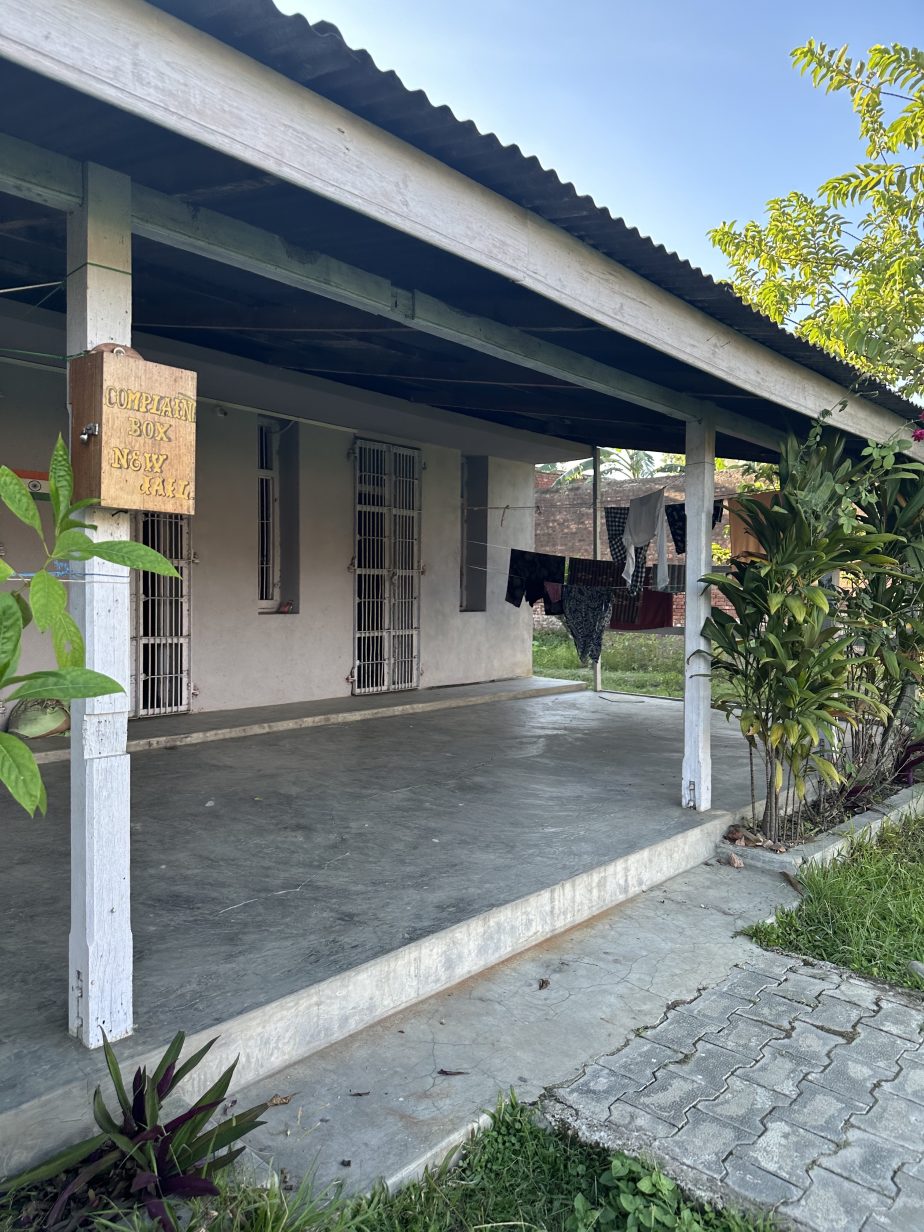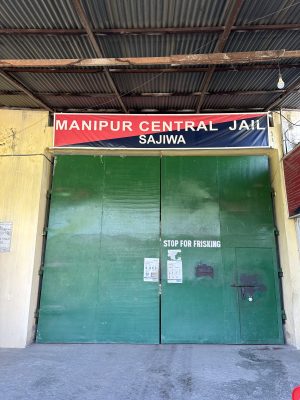Around 176 Myanmar nationals have been languishing in detention centers in Imphal, the capital of the Northeast Indian state of Manipur over the past three years. According to the Manipur Human Rights Commission (MHRC), all of them are being detained well after the completion of their sentences.
After being detained in Imphal jail for over two years — far longer than the punishment awarded to them under the law — they were shifted to a nearby detention center in Imphal in September 2023.
According to India’s Ministry of Home Affairs, foreign nationals who enter the country without valid travel documents are treated as illegal immigrants under The Foreigners’ Act 1946 with a maximum sentence of six months before being sent back to their home country. The Myanmar immigrants were arrested in early 2020 for venturing deep into Manipur, which shares a 390-km-long border with Myanmar, without documents. They have been living in confinement since then.
An official in the Manipur Home Department admitted that they are suffering a harsh punishment for a “minor mistake.”
Politics on both sides of the India-Myanmar border have become increasingly volatile and violent. The Myanmar detainees are now caught in the middle.
Since early May, Manipur has been in the grip of ethnic clashes between the non-tribal Meitei majority and the tribal Kuki minority communities. Manipur’s Chief Minister Biren Singh, who belongs to the Meitei community, has been partial to his community in the ethnic violence.
The Kukis and the illegal immigrants from Myanmar share the same ethnicity.
In 2018, India put in place the Free Movement Regime (FMR) to facilitate people-to-people contact and border trade. The FMR allowed people residing close to the India-Myanmar border to venture 16 km deep into each other’s territory without any documents.
In February 2021, Myanmar’s military staged a coup. Its violent crackdown on opponents of junta rule has triggered a flow of Myanmar nationals into India in search of a safe haven, prompting the Indian government to suspend the FMR in 2022.
Soon after the ethnic clashes erupted, Chief Minister Biren Singh blamed the “illegal immigrants” for the unrest. There is an urgent need to identify and repatriate them, he said.
His government has done little for the 176 Myanmar men, women, and children waiting at the detention center in Imphal.
Prashant Bhushan, a lawyer in the Supreme Court and an activist, told The Diplomat that the authorities are using illegal immigrants as a scapegoat. “There is no evidence of their involvement in any violence,” he said, adding that “blaming minorities is a standard technique of the government to shift the focus of the public.” They are “easy targets,” he pointed out.
“The Indian government cannot blame illegal immigrants for Biren Singh’s mishandling of the situation in Manipur, former Director General (DG) of India’s Border Security Force (BSF) Prakash Singh, who retired from service in 1996, said. “The FMR was exploited and misused by insurgents,” he said. There should have been “proper security and checking at the border.” Even if a small group is involved in the ethnic violence, it does not mean all immigrants are, the former police official observed.
Among the Myanmar nationals in detention is a group of weavers from a village near Monywa in Myanmar’s Sagaing Region. They crossed the border searching for a $25-dollar-a-week job in early 2021. Ngeinei was arrested in Tengnoupal district beyond the FMR zone, was imprisoned in Churachandpur jail for two years, and later transferred to the Women’s Foreigner’s Detention Centre (WFDC) in Imphal.
In May 2023, the Manipur Human Rights Commission called for the immediate release of the detainees and their immediate deportation to Myanmar.
“Had we known it would cost us three years of our lives, we would not have come for work,” Ngeinei said, as her eyes swelled up with tears.
A red brick wall divides the WFDC and the Manipur Central Jail. Facilities in the WFDC are far worse than those in the jail. There is no television, radio or newspaper available at the WFDC.

An empty complaint box at the Women’s Foreigner’s Detention Centre (WFDC) where illegal immigrants from Myanmar are being held since September 2023. The authorities have not provided inmates with stationery to register their complaints.
Credit: Aaisha Sabir.
The Diplomat visited Manipur Central Jail. Several inmates here are serving time for carrying narcotics and contraband. Thirty-five-year-old Rosie, who is from Manipur, was arrested at New Delhi airport for carrying methamphetamine.
“We are locked in our rooms by 5 pm. We have to sleep early and wait for the night to end so we can come out into the courtyard. The jail is better than the detention center. At least you can watch TV,” Lee, another weaver from Myanmar, said while brushing her 2-year-old’s hair at the WFDC.
The State Social Welfare Department runs the WFDC but it has not sent rules and regulations to the employees at the WFDC.
“It has been several months since we asked for it. We have kept the same rules as the jail as we do not know the rules for the detention center,” an official overseeing the management of the jail and the detention center said. The official added that no telephonic communication is allowed for the immigrants for security reasons after the violence broke out in May.
“I could not speak to my family, not even when my parents passed away. The jail authorities informed me of their death,” said Gawa (name changed), who is at the WFDC.
“We cannot send them back without an official process,” Jail Superintendent S.K. Bhadrika said. The Myanmar authorities have told Bhadrika that they will process the paperwork soon.
The WFDC is overflowing with immigrants, Gawa said. “If more people come, where will they stay? There is no room for more.”

































